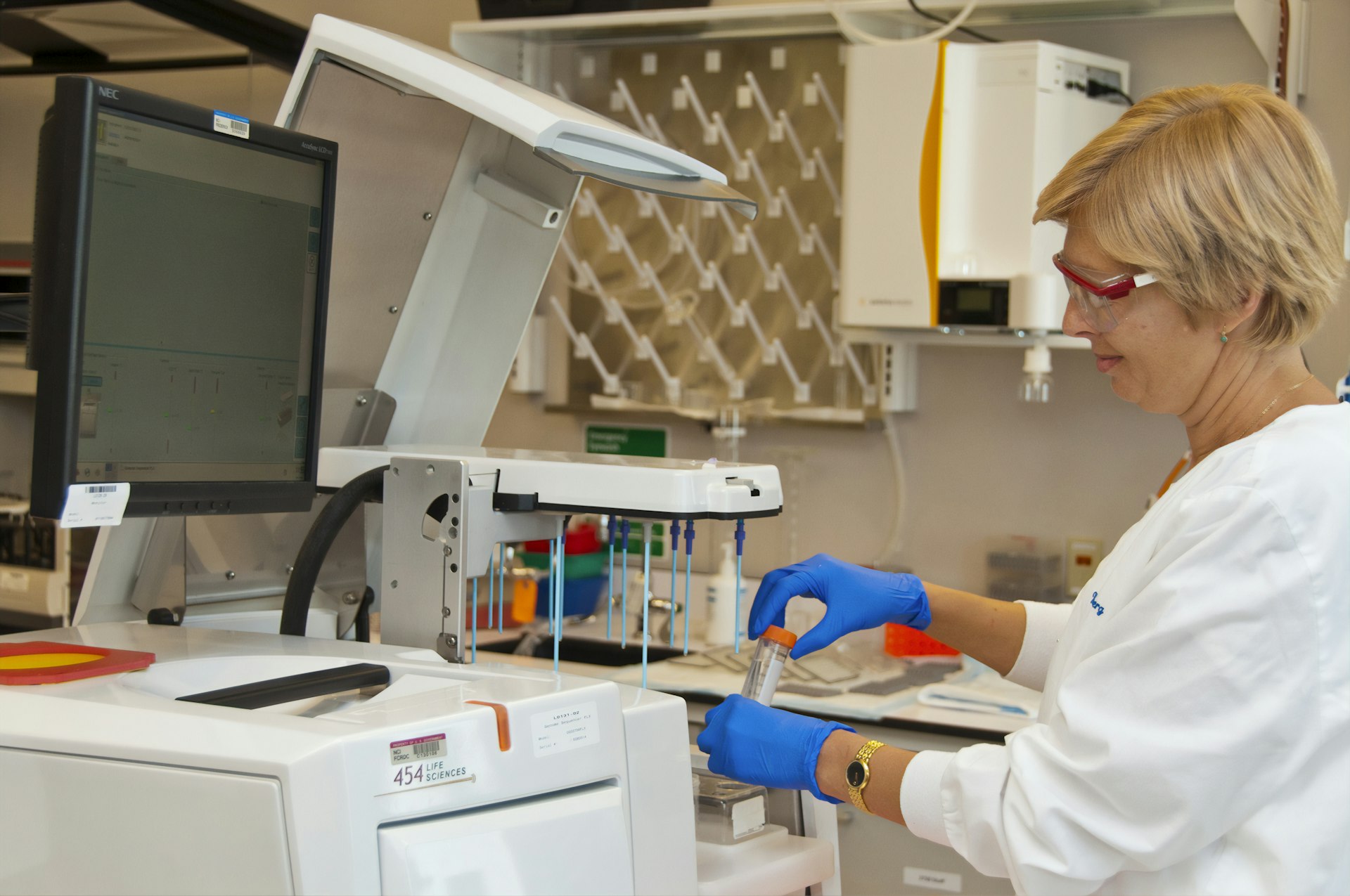Unlocking Preventive Healthcare: The Future of Genetic Testing for Personalized Well-being

Photo by National Cancer Institute on Unsplash
Introduction: The New Paradigm in Preventive Healthcare
Genetic testing is rapidly evolving from a niche diagnostic tool into a cornerstone of preventive healthcare. By 2025, experts predict genetic screening will become an integral part of routine health planning, helping individuals and providers anticipate, mitigate, and even prevent diseases before symptoms arise [1] . This transformation stems from innovations in predictive genomics, expanding the scope of testing and integrating personalized medicine into everyday care [4] .
How Genetic Testing is Changing Preventive Care
Genetic testing enables healthcare providers to identify people at risk for certain diseases long before symptoms manifest. For instance, tests for BRCA1 and BRCA2 mutations reveal increased risk for breast and ovarian cancer, allowing individuals to pursue frequent screenings and proactive interventions [2] . Similarly, knowing one’s APOE4 status can guide strategies to reduce the risk of Alzheimer’s disease. With early detection, patients can work with providers to design personalized plans for screening, lifestyle changes, and preventive medications.
Governments worldwide are beginning to formalize genetic screening as part of national health initiatives. For example, South Korea now uses widespread genetic testing to detect early signs of common cancers, while insurers across Europe and Asia increasingly cover tests for cardiovascular and neurological conditions, betting that prevention can lower both healthcare costs and complications [1] .
Personalized Health Strategies: Beyond Disease Risk
Genetic insights are increasingly used to craft highly personalized health strategies. DNA testing informs decisions about diet, exercise, and medication, accounting for individual metabolic differences. For example, some genetic variations affect how people process caffeine or alcohol, while others influence responses to specific diets or exercise regimens [2] . With this knowledge, providers can recommend tailored plans to maximize health benefits and minimize risks.
Pharmacogenomics, a field studying how genes influence drug response, is transforming medication management. In psychiatry, for example, genetic tests help determine optimal antidepressant choices and dosages, reducing side effects and improving efficacy [3] . As research progresses, pharmacogenomic testing may become routine for many conditions, guiding safer and more effective treatments.
Reducing Hereditary Disease Risk and Informing Family Planning
Genetic testing plays a vital role in assessing hereditary disease risk. Individuals with a family history of disorders like cystic fibrosis or hereditary cancers can determine whether they’ve inherited high-risk genes. This information is invaluable for family planning, guiding decisions about childbearing and early interventions for potential health issues [2] .

Photo by Trust “Tru” Katsande on Unsplash
Genetic counseling is recommended for those with concerning family histories or unclear genetic test results. Trained counselors help individuals interpret findings, assess disease risk, and make informed choices about prevention and care [5] . If local access to genetic counselors is limited, many healthcare providers offer telehealth counseling as an alternative.
Implementation Guidance: How to Access Genetic Testing for Prevention
Step 1: Consult Your Healthcare Provider Start by discussing your personal and family health history with your primary care provider. They can assess your risk for hereditary diseases and recommend appropriate genetic tests. If you have multiple or rare cancers in your family, or if you’ve received concerning results from direct-to-consumer tests, request a referral to a genetic counselor [5] .
Step 2: Choose the Right Test and Provider Genetic tests are available through hospitals, clinics, and certified laboratories. Providers will help identify which tests are most relevant based on your risk profile. For those interested in direct-to-consumer testing, ensure the service is accredited and offers clear privacy policies. Always seek professional interpretation of results to avoid misinterpretation.
Step 3: Review Insurance Coverage and Cost Some insurers now cover preventive genetic testing for specific conditions. Contact your insurance provider to ask about coverage for tests related to cancer, cardiovascular disease, or neurological disorders. If coverage is limited, inquire about payment plans or financial assistance programs through your healthcare provider or hospital.
Step 4: Engage in Genetic Counseling Genetic counselors help clarify test results and guide next steps. If local access is unavailable, ask your provider about telehealth genetic counseling services. Exchanging medical information and genetic test results with family members can also help them make informed health decisions.
Step 5: Take Preventive Action If your results indicate elevated risk, your provider may recommend:
- Frequent health screenings (e.g., mammograms, colonoscopies)
- Preventive medications (e.g., statins, anti-hypertensives)
- Lifestyle changes (e.g., tailored diet plans, exercise routines, smoking cessation)
These interventions are designed to reduce risk and improve long-term health outcomes. Providers may also recommend ongoing monitoring and adjustment of preventive strategies as your health profile evolves.
Potential Challenges and Solutions
Access and Equity: While genetic testing is expanding, disparities in access remain. Rural areas and underserved populations may have limited availability of testing and counseling services. Telehealth appointments and outreach programs are addressing these gaps, but further progress is needed to ensure equitable access [5] .
Privacy and Data Security: Genetic data is sensitive. Choose testing providers and labs with robust privacy policies, secure data storage, and clear procedures for handling personal information. Ask your healthcare provider to explain how your data will be used and protected.
Interpreting Results: Genetic testing can produce complex results. Always seek professional guidance from certified counselors or healthcare providers rather than interpreting raw data independently. Remember, not all risk findings equate to disease development-context, family history, and environmental factors matter.
Alternative Approaches and Future Outlook
For those unable or unwilling to pursue genetic testing, traditional preventive strategies-such as regular screenings, healthy lifestyle choices, and family history assessments-remain valuable. However, as genetic testing becomes more affordable and accessible, its integration into routine care will likely accelerate [1] . Employers, insurers, and national health systems are exploring ways to expand coverage and outreach, with some already including genetic screening in wellness programs.
The future promises expanded scope, improved accuracy, and more actionable insights as research continues. Precision medicine, guided by genetic data, will increasingly inform not only disease prevention but also treatment pathways and ongoing care [3] .
Summary: Empower Your Health with Genetic Insights
Genetic testing is ushering in a smarter, more proactive era of healthcare. By enabling early disease detection, personalized wellness strategies, and informed family planning, it offers unprecedented opportunities to take control of your health journey [2] . To access these opportunities:
- Consult with your healthcare provider about your risk and testing options
- Seek genetic counseling for guidance and interpretation
- Explore insurance coverage and alternative assistance programs
- Engage in preventive actions based on your genetic profile
If uncertain about where to start, contact your primary care provider or search for certified genetic counseling services in your area. With the right information and support, you can harness the future of genetic testing to build a healthier tomorrow.
References
[1] Lifecode (2025). Genetic Testing in 2025: Trends, Insights & Future Forecasts. [2] Mapmygenome (2023). How Genetic Testing is Revolutionizing Preventive Healthcare. [3] Sermo (2025). 10 future healthcare trends that will transform 2025. [4] Dromics Labs (2025). The Future of Genetic Testing in Disease Prevention and Treatment. [5] Facing Our Risk (2023). Genetic testing and the future of medicine.
MORE FROM cheerdeal.com













